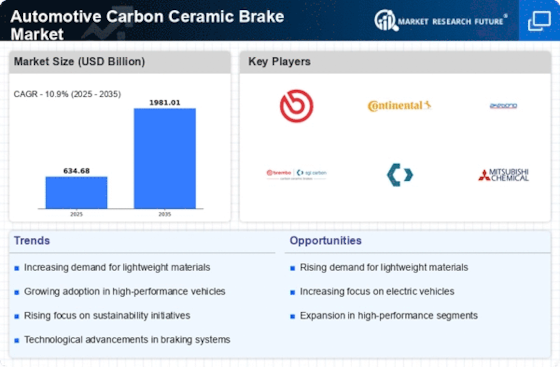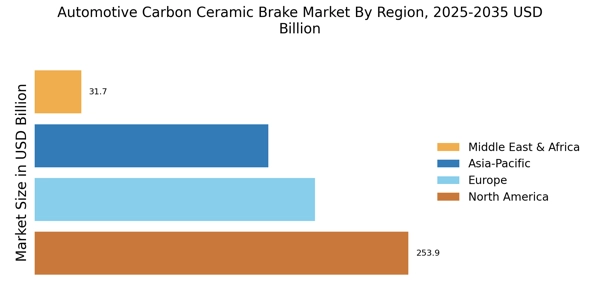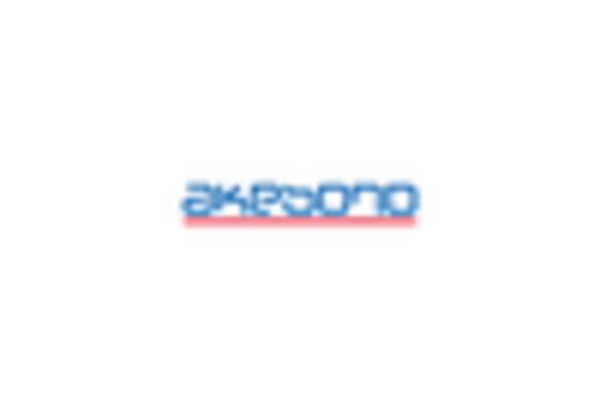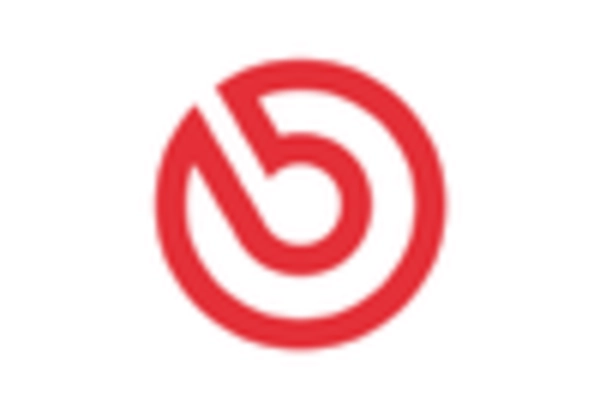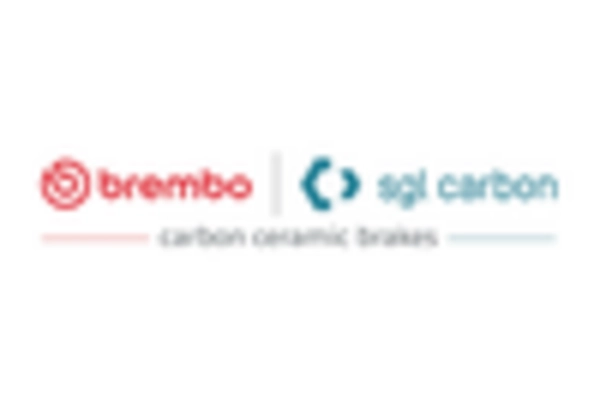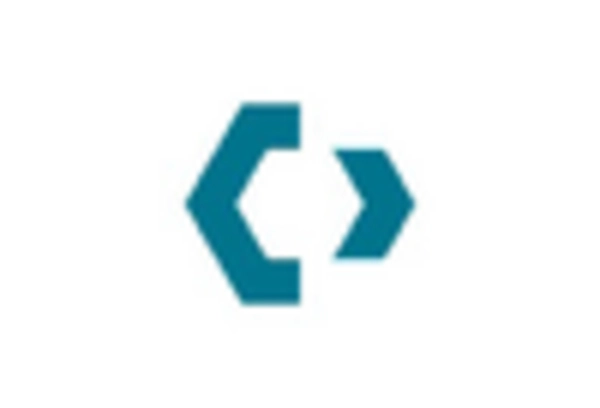Technological Innovations in Brake Systems
The Automotive Carbon Ceramic Brake Market is experiencing a surge in technological innovations that enhance braking performance and safety. Advanced materials and manufacturing techniques are being developed, leading to lighter and more durable brake systems. For instance, the introduction of new composite materials has improved thermal stability and wear resistance, which are critical for high-performance vehicles. As manufacturers invest in research and development, the market is likely to see a rise in the adoption of carbon ceramic brakes, particularly in luxury and sports cars. This trend is supported by data indicating that the market for high-performance braking systems is projected to grow at a compound annual growth rate of over 8% in the coming years, reflecting the increasing demand for superior braking solutions.
Rising Demand for High-Performance Vehicles
The Automotive Carbon Ceramic Brake Market is witnessing a notable increase in demand for high-performance vehicles, which is driving the adoption of advanced braking technologies. Enthusiasts and consumers are increasingly seeking vehicles that offer superior acceleration, handling, and braking capabilities. Carbon ceramic brakes are particularly favored in this segment due to their lightweight nature and exceptional performance under extreme conditions. Market data indicates that the segment of high-performance vehicles is expected to grow significantly, with projections suggesting a rise in sales of sports cars and luxury vehicles. This trend is likely to propel the demand for carbon ceramic brakes, as manufacturers strive to meet the expectations of performance-oriented consumers.
Regulatory Standards and Safety Requirements
The Automotive Carbon Ceramic Brake Market is significantly influenced by stringent regulatory standards and safety requirements imposed by various authorities. These regulations often mandate the use of advanced braking systems to enhance vehicle safety and performance. As a result, manufacturers are compelled to adopt carbon ceramic brakes, which offer superior stopping power and reduced brake fade. The increasing emphasis on vehicle safety is evident in the rising number of safety ratings and tests that vehicles undergo before market release. Furthermore, data suggests that vehicles equipped with advanced braking systems, including carbon ceramic brakes, are more likely to achieve higher safety ratings, thereby appealing to safety-conscious consumers and boosting market growth.
Environmental Considerations and Sustainability
The Automotive Carbon Ceramic Brake Market is increasingly shaped by environmental considerations and the push for sustainability. As consumers become more environmentally conscious, there is a growing demand for products that minimize ecological impact. Carbon ceramic brakes are often viewed as a more sustainable option due to their longer lifespan and reduced brake dust emissions compared to traditional materials. This shift towards eco-friendly products is prompting manufacturers to invest in carbon ceramic technology, aligning with consumer preferences for sustainable automotive solutions. Market analysis indicates that the sustainability trend is likely to continue influencing purchasing decisions, thereby enhancing the market for carbon ceramic brakes.
Increased Investment in Automotive Research and Development
The Automotive Carbon Ceramic Brake Market is benefiting from increased investment in automotive research and development. As manufacturers seek to innovate and improve vehicle performance, substantial resources are being allocated to the development of advanced braking systems. This investment is not only aimed at enhancing the performance of carbon ceramic brakes but also at reducing production costs, making them more accessible to a broader range of consumers. Data suggests that the automotive R&D expenditure is projected to rise, indicating a commitment to technological advancement. This trend is likely to foster competition among manufacturers, ultimately leading to improved products and increased market penetration of carbon ceramic brakes.


